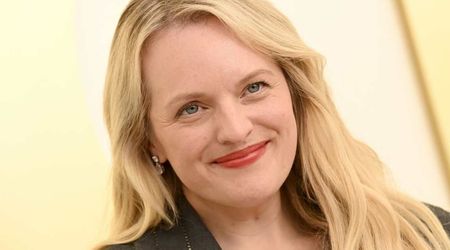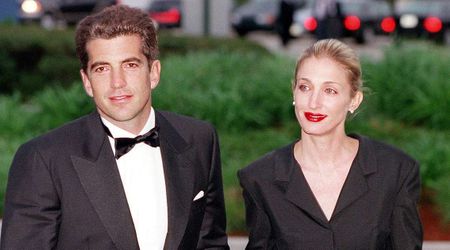Showtime's 'The L Word' broke the glass ceiling for lesbian relationships on primetime TV but was a potboiler

When the first season of 'The L Word' saw the light of day or night in this case on January 18, 2004, portraying lesbian relationships on prime time television was not the obvious choice. In fact, when one of the creators of the show, Ilene Chaiken, spoke about how she convinced Showtime about the show, she said she was turned down the first time.
This was two decades ago. When Showtime agreed a few years later, it became popular and was even appreciated for finally representing women who love women. It had put on display affections that for a long time did not see representation in mainstream media.
However, when it concluded after six seasons, many wondered if it rightfully represented the lesbian population or if it fell prey to wanting to be palatable to a wider range of audience. In an interview with the Washington Blade, Chaiken reflected on when the executives said no, "'[They said,] A prime time, a night-time drama about the lives of lesbians — no, I just don't think we can sell that to the guy in the corner office.' So I went away and I wasn't surprised but was testing the waters. I decided to leave it be and a year later Showtime picked up an English television show called 'Queer as Folk'. They bought the format and remade it as an American show and it was a success for them. So I went back and said, 'You've got the boys, what about the girls?' They said, 'Yes, you're right, we should do your show.'”
Criticism about the show ranged between the portrayal of characters being a lot more glamorous compared to real life and how the show tried really hard to counter the notion of lesbian bed death as the seasons progressed. For instance, Ginia Bellafante wrote for the New York Times in 2009 and said, "Since its arrival in 2004, 'The L Word' has shown little interest in variegating portrayals of gay experience. Instead, it has seemed to work almost single-mindedly to counter the notion of lesbian bed death, the term coined by the sex researcher Pepper Schwartz to describe the fizzling of passion in long-term relationships between women."
Having premiered in a year when debates around same-sex marriage had taken a heated turn, taking centre-stage at the Senate, the show itself did not use the platform to align itself in any way to the ongoing debate. This was after the Massachusetts Supreme Court ruled in 2003 that denial of marriage licenses to same-sex couples is a violation of the state's constitution and allowed six months time for the state to comply with the order.
Chaiken spoke to the New York Times and said, "I rail against the idea that pop television is a political medium. I am political in my life. But I am making serialized melodrama. I'm not a cultural missionary." If we were to compare 'The L Word' with its male counterpart, which is the U.K. version of 'Queer as Folk' that explored the lives of three gay friends living in Manchester, the legacy left behind is different.
'Queer as Folk' turned out to be path-breaking and resulted in inspiring a show in the U.S. Created by Russell T. Davies, the show consisted 10 episodes in total and aired in 1999-2000, so it was a lot crisper.
'The L Word', however, with potential for heated arguments in terms of its portrayal, received a wide range of criticism from the lesbian population. So, how much of a role did the show play in the genre of New Queer Cinema? It definitely showed same-sex relationships can be a hit among prime time television viewers even if at the end the show succumbed to becoming another potboiler.
However, when compared to the content we have access to today, 'The L Word' falls flat. In recent times, there has been an increase in queer characters being portrayed on TV shows. Sometimes, they are part of a potboiler and the plot doesn't entirely surround the character's gender identity or sexual orientation in the grand scheme of things.
A good example would be Netflix's show 'Lucifer' in which the titular character played by Tom Ellis and Mazekine played by Leslie Ann Brandt are pansexual and it is accepted without any judgment. If any judgment or comments were passed on the show, it was mostly about the number of individuals they had relationships with.
Then, we have shows that explore identity around the spectrum of gender roles and all the stereotypes that have developed around them. A good example of this would be Gregg Araki's 'Now Apocalypse' which was mostly commentary by three young people living in Los Angeles who explore their identity.
The portrayal of the role "being woke" plays in gender politics among millennials is something the show references but in an off-hand manner. This is Araki's signature, a pioneer when it comes to New Queer Cinema.
Then we have some brilliant shows such as Netflix miniseries 'Tales of the City' based on the novel series by Armistead Maupin. The portrayal of queer people across the spectrum spanning different generations is conveyed deftly by Lauren Morelli, who developed the show.
Each character's arc is fleshed out and adapted from the novels brilliantly making the show a compelling watch. We also have 'Pose' which depicts African-American and Latino LGBTQ and gender-nonconforming ballroom culture in New York in the 1980s and 90s.
The show gave us an insight about how models and dancers competed for trophies with the support of their chosen families - the Houses. Some of the notable ones, for instance, are the House of Ebony, the House of Ninja and the House of Xtravaganza.
The question now is, how would Showtime's reboot of 'The L Word' titled 'The L Word: Generation Q' fare in comparison to such interesting shows. 'The L Word: Generation Q' is slated to premiere December 8 on the network and Chaiken continues as the show's creator and Marja-Lewis Ryan will serve as showrunner while actors Jennifer Beals, Katherine Moenning and Leisha Hailey reprise the roles they played in 'The L Word' of Bette Porter, Shane McCutcheon and Alice Pieszecki.










